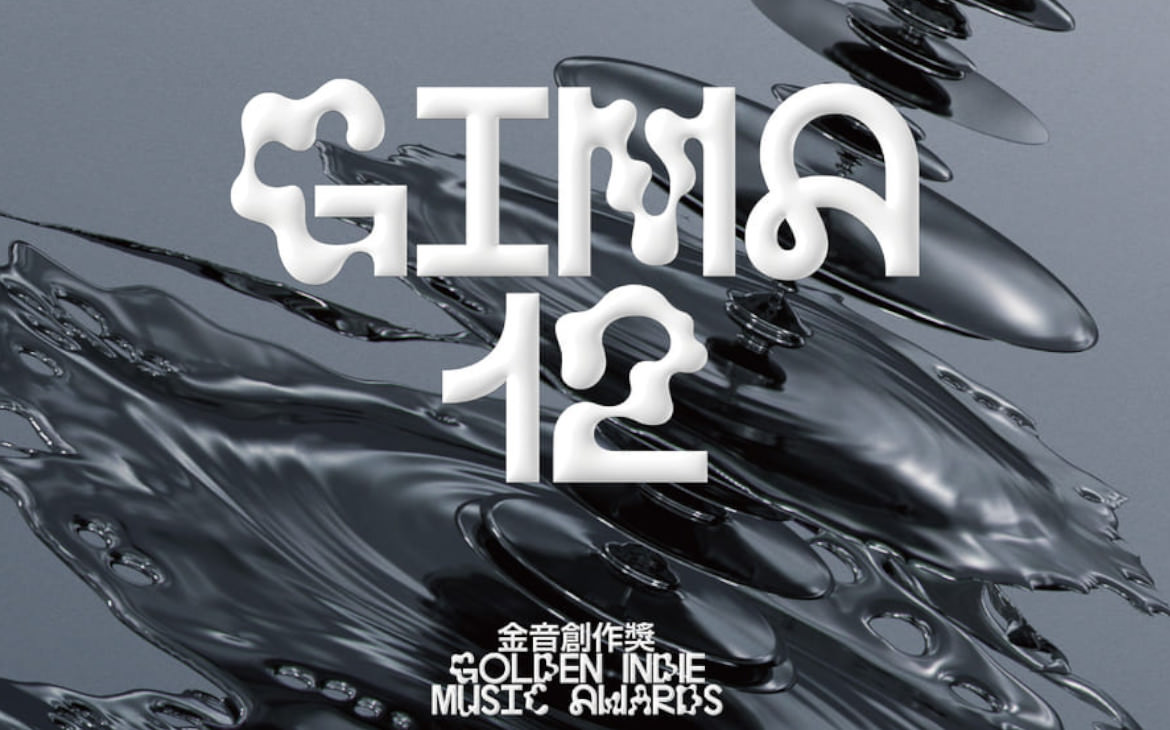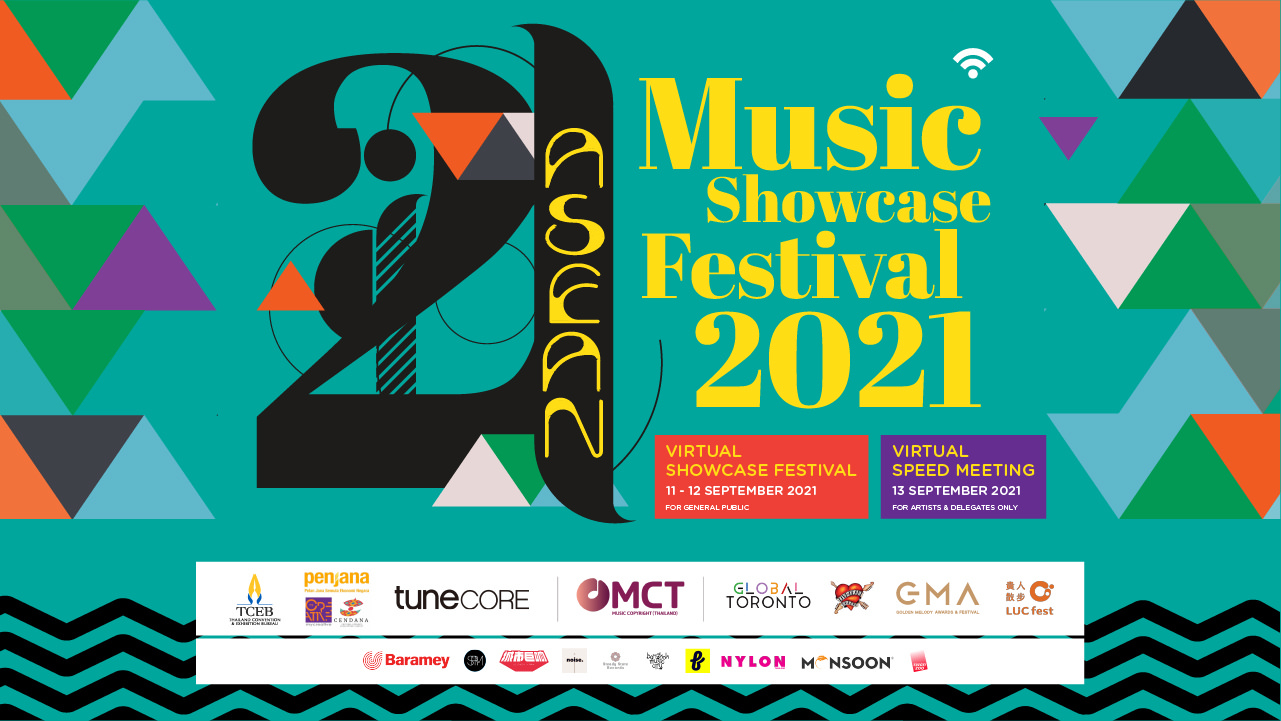BY THE EDITORS
Taiwan Creative Content Agency (TAICCA) School held its second edition of Music Management Program from September 29 to October 15, 2021. The program is a series of online-based workshops and courses that aim to help music industry professionals (such as artists, labels, artist management, tour managers, and more) with these key proficiencies:
- Self-management/business management
- Planning for tours/market analysis
- Cross-promotion/collaboration
There were two additional elective sessions: An Observation on the Trends and Market Overseas: Information Kit and Pitching Class: Recorded Courses + Information Kit.
Interested applicants submitted their application via TAICCA’s email, indicating their preferred courses and/or workshops with a deposit fee of USD 100. Each private online session has 10 to 15 attendees. The program indicates that applicants who are recommended by the instructors will have the opportunity to further their learning via “useful resources according to their needs, or invite them to collaborate with TAICCA on future projects.”
For this year’s customized curriculum, TAICCA partnered with Midem, an annual international business event held in Cannes, France, which specifically focuses on helping attendees “refine” their EPK (electronic press kit) and business plan. Select attendees from the Music Management Program and TAICCA’s collaboration stage at Tainan-based LUCfest, an annual music showcase festival, will join Midem Talent Exporter (MTE) and Midem Songwriting Camp (SWC). Additionally, selected Taiwanese artists would receive support from MTE, SWC, and TAICCA.
Empowering artists and honing business smarts
The first part of the curriculum, self-management/business management, consisted of five topics, each with a corresponding Q&A session conducted by instructors from various music industry professionals:
- Workshop: How to Get Your Talent Export-Ready: MTE as a Case Study – Delphine Grospiron (Midem)
- Course: Branding for the Indie Artists: Learn from Asian Indie Management Company – Jungu Jeong (Magic Strawberry Sound)
- Course: The Art and Practice of an International Artist Management Company Rasmus Damsholt (ATC Management)
- Workshop: Getting to Wow! The Keys to an Effective EPK – Adam Lewis (Planetary Group)
- Workshop: Business Plan Pitching: Presentation – Thomas Quenoil (Midem)
Here are the course highlights:
“You cannot deal with the world on your own”
Artists who wish to know more about the essentials of being “export-ready” received a 101 on the subject. Delphine Grospiron kicked off the curriculum with Midem Talent Export (MTE), which she launched, as a case study. Grospiron herself has had experience in the touring business for more than a decade and led what is now Live Nation France.
First, artists have to assess themselves whether or not they are export-ready. Some key criteria include: having a dedicated professional support team (manager, label, agent, etc.) and company/legal entity representation; live performance experience (more than five shows on an annual basis); media coverage; equipped with promotional materials/assets; able to present a career development strategy “including export, with concrete short- and long-term goals.”
MTE’s case began as the current iteration of Midem Artist Accelerator. One of MTE’s core objectives is to be a “door-opener for artists to unparalleled chances of meetings across geographies.” Their comprehensive program for artists includes a “visibility business” which comprises a promotional plan, a pitch, and a demo showcase. The “learning access” portion offers exclusive educational content for artists to extensively learn about talent development as well as networking opportunities and access to latest artist services.
This year’s edition of Midem Digital Edition on November 16-19 will cover promotional, pitch, visibility, and showcase opportunities.
“Management, management, management”
This is the core of Jungu Jeong’s work as A&R Department Head of Seoul-based Magic Strawberry Sound, a music management company based in Seoul, South Korea and home of the likes of SE SO NEON (including the solo project of frontwoman So! YoOn!), Silica Gel, Sunwoojunga, Lee Luli, and more.
Jeong currently manages more than 20 artists, with work ranging from producing albums and organizing/booking performances. Overall, he shared that during Magic Strawberry Sound’s 11-year operation, they have produced more than 380 albums, over 2,000 songs (with distribution of over 1,500), and more than 200 concerts as the company evolved from a label to a full-blown music management company—a “rather important” move in the domestic market, since the roles of the two differ from each other.
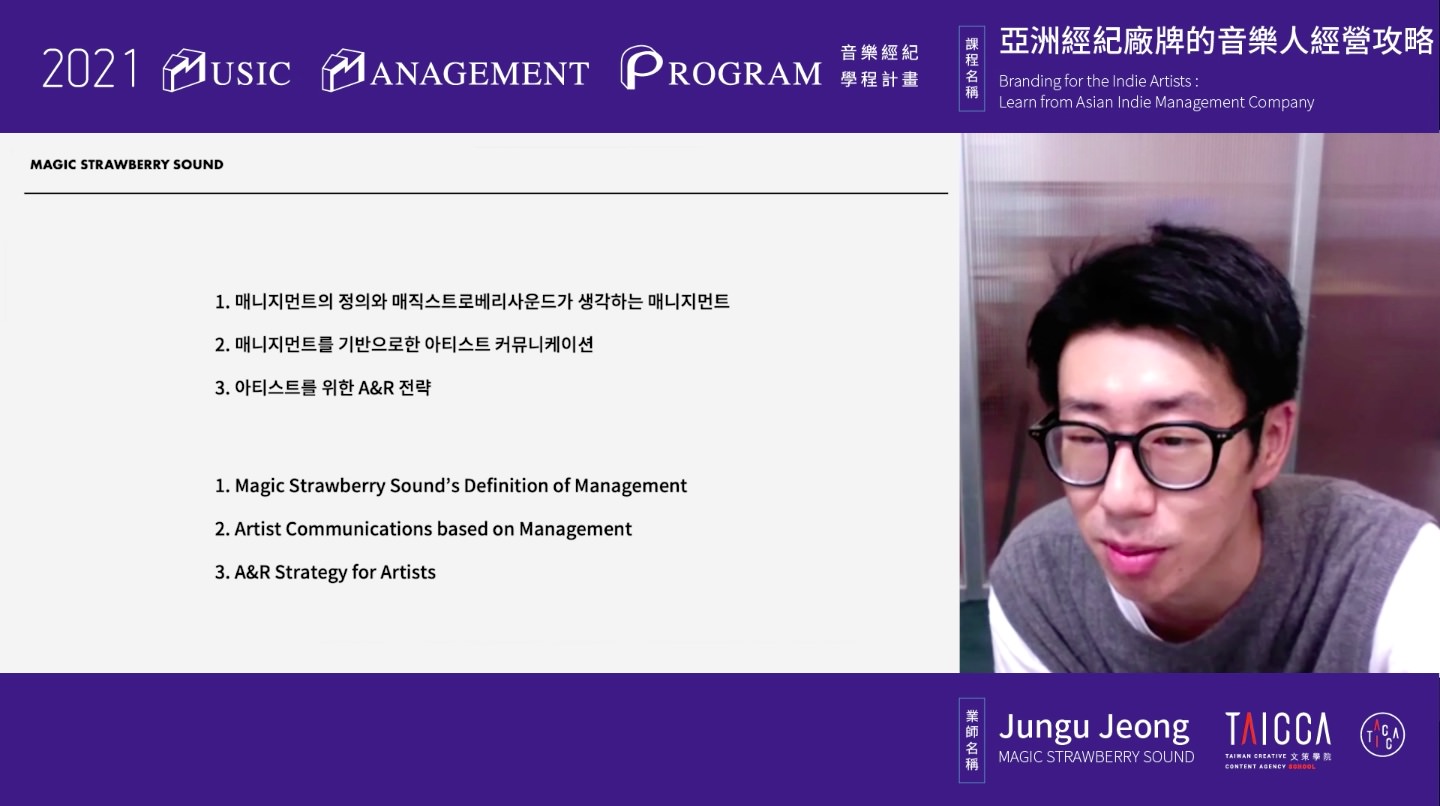
The crux of the course is more on the roles, duties, and responsibilities that a music management agency/company plays in developing artists, and Jeong has constantly underscored artists as creators, and importance of not interfering when it comes to the artist’s creative license. When it comes to communicating with artists, he outlined three key factors: trust, communication, and respect for diversity. “Without these things, it would be difficult to do the job well.”
“I think that in the end, isn’t management a sort of creation in itself?” he asks.
“Driving an artist’s career and finding all the right partners”
Rasmus Damsholt, who runs the Nordic office of artist management company, ATC Management, shared their company strategy, which extends beyond catering to recording artists, but also songwriter, producers, and composers—with an emphasis on the last category, which also operates in other industries such as TV, film, and streaming platforms.
A key takeaway in Damsholt’s course is his preliminary outline of an artist manager/management’s scope of responsibilities, which includes: preparing artists’ one-page sheet, project management tool for professionalizing communication with artists, artist/band contracts, funding, and songbibles. This makes the relationship between manager and artist inevitably close, citing that oftentimes, he’s almost always on call to address any concerns and needs. He also touched on the financial aspect of the professional relationship, which is not always on the lucrative side—except if your managed artist hits gold.
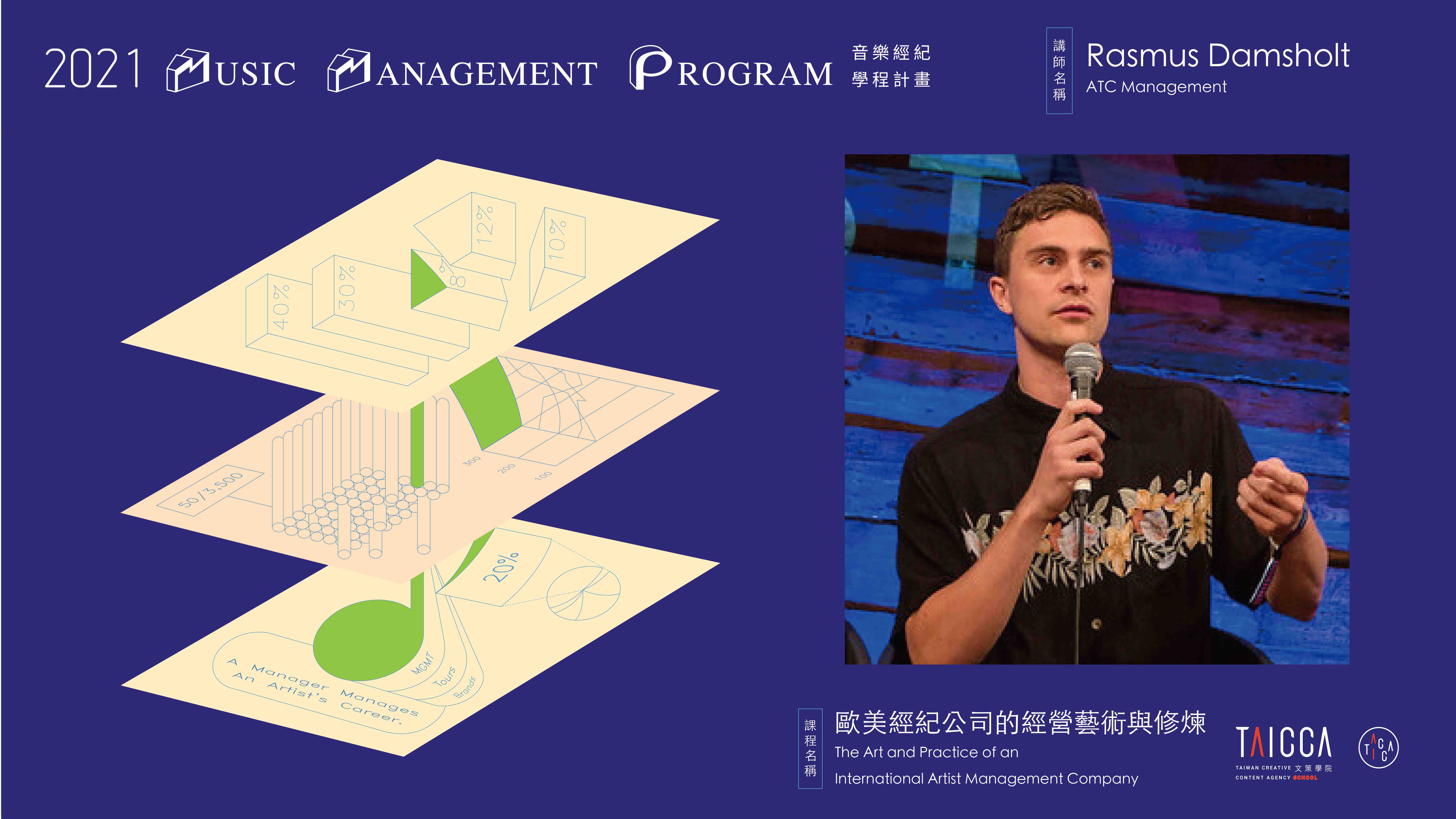
As an artist manager, Damsholt described some of the things he looks for when signing new artists, such as having a unique sound, citing examples like “revolutionizing a theme” and those who do “something in their own way.” He also said while it’s not really a big no-no, at a personal and professional level, he’s careful not to manage artists who are very similar to each other. “It’s important that the artists are not competing for the same opportunities.”
Another takeaway from the course is when Damsholt emphasized on the importance of the artist’s creative process and focus, which is creating music, and how all the other parts of the business should be taken care of by the manager. It should be a combination of organic and strategic.
“A lot goes into breaking an artist—PR is just one facet”
Adam Lewis who heads Los Angeles-based Planetary Group has worked extensively with new and up-and-coming artists with radio, press, and playlist opportunities in the United States and Canada. In his “Getting to Wow! The Keys to an Effective EPK” workshop, he ran through “essential press hints” for artists and/or publicists, including emphasizing the importance of convenience and accessibility of the press kit for writers and media entities to review. “You want to keep it easy, simple, and direct to the point. Less is more,” he shares. “But you want to relay your message out there,” and pointed out that controlling what gets out in the public is still in line with the artist’s messaging.
He also advised to personalize emails (“Don’t bcc 500 contacts in a single message”), researching and following writers on social media, and being prepared for media interviews, and generally having all your assets ready (audio, hi-res publicity photos, biography) and on the go. Lewis also mentioned the importance of artists being open to different kinds of coverage for their press campaign.
A key takeaway from this course is managing expectations. Lewis emphasizes that new artists should not expect to get coverage from bigger/high-profile publications such as Pitchfork, Rolling Stone, etc. from the get-go. “Larger sites are gonna be looking for data, for numbers,” he said. “You have to have an open mind on where you can be getting your press… All of the sites have to like your music first but the larger sites have to see the reason why it’s important to write about [your music.]”
“Selling through storytelling”
Midem’s Thomas Quenoil shares a workshop on how to pitch a business plan with Lee Kido, the founder of Malaysia’s Eargasm Festival, delving into what are the important elements of a business pitch, the importance of messaging and strategically finding ways on how best to execute your pitch: how it ties in with the artist’s established brand/personality, how it relates to their fans/target market, optimizing strong points, and so on.
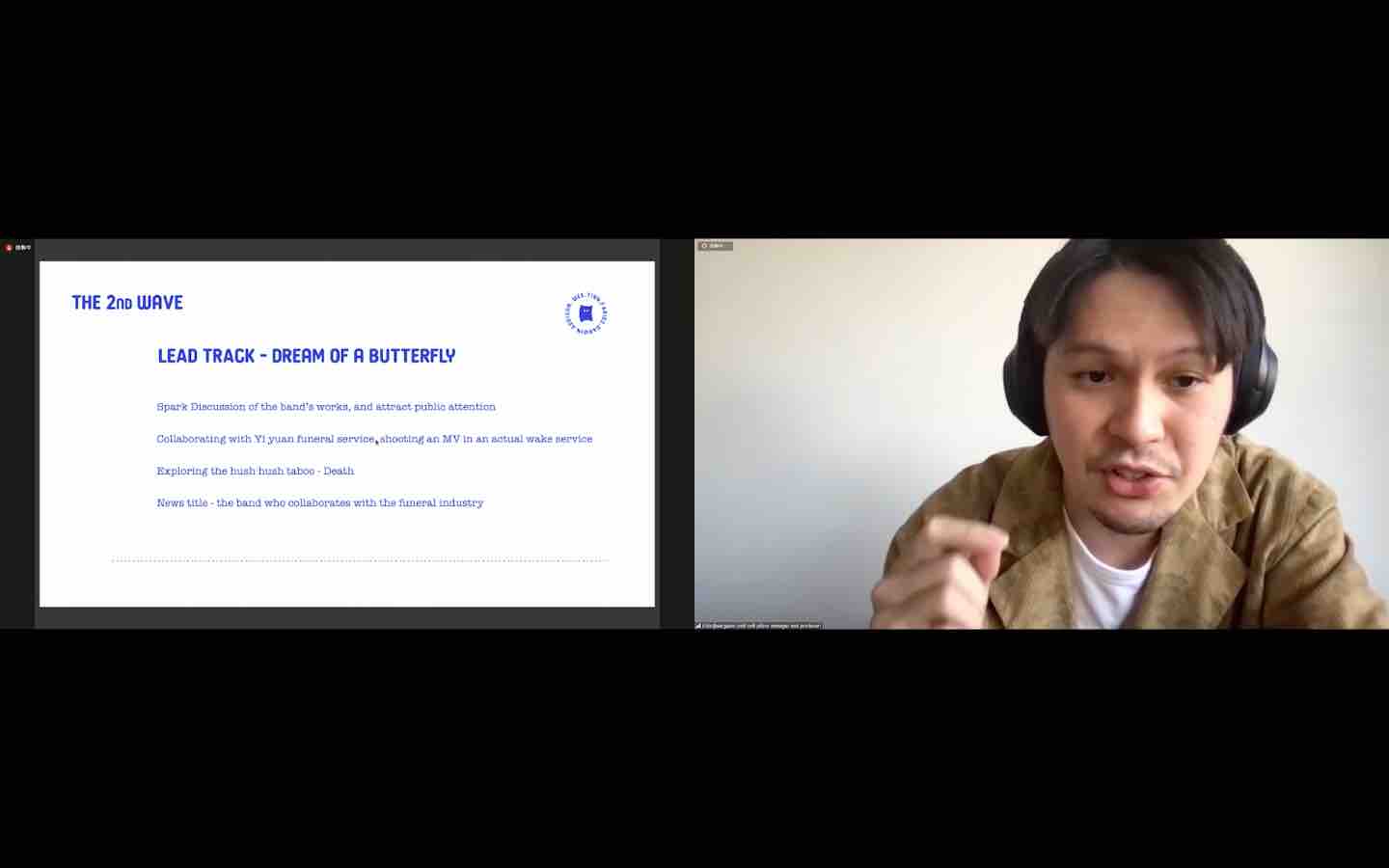
Overall, TAICCA’s Music Management Program works when it comes to addressing artists’ needs in an accessible way, with direct insight and to a degree, mentorship from music industry professionals whose rich, diverse experiences also offer different, much needed perspectives.
Music artists can especially benefit from this program, not just under our current circumstances. Aside from valuable knowledge and workshop offerings, the program also helps its attendees adapt to different situations accordingly and augment or develop their management skills in different stages of their careers.


